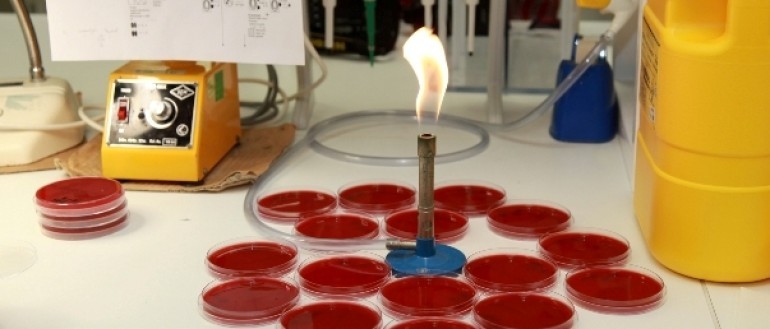A Northern Territory (NT) based research project investigating the effectiveness of a vaccine to prevent severe diarrhoea in children, has been recognised as one of the country’s ten best research projects for 2013 by Australia’s peak body for supporting health and medical research.
The Menzies School of Health Research's project, Tackling preventable diseases: improving rotavirus vaccines, was recently bestowed the prestigious honour through the National Health and Medical Research Council’s publication, Ten of the Best Research Projects 2013.
Rotavirus is the most common cause of severe diarrhoeal disease in infants and young children globally. The NT historically records very high rates of hospitalisation for rotavirus gastroenteritis, especially among Aboriginal and Torres Strait Islander children.
Over a two-year period, nurses at Royal Darwin Hospital and Alice Springs Hospital identified children who were admitted to hospital with acute gastroenteritis.
The immunisation status of all the children in the study was established using the NT immunisation register.
Chief investigator, Professor Ross Andrews, said the recognition was a fantastic result for Menzies and the project team and highlighted an important body of work in improving vaccines for infectious diseases.
“We expected that the children admitted with gastroenteritis, especially those confirmed to have rotavirus infection, would be less likely to be vaccinated than the children admitted for respiratory illness,” he said.
“Our study confirmed this to be the case.”
This work showed that vaccination for rotavirus reduced the risk of gastroenteritis by 50 to 60 per cent.
“While we found rotavirus vaccination to be protective, levels of protection were lower than estimates from clinical trials and from other developed countries. Further work allowed us to explore possible reasons for this,” Prof Andrews said.
Protection from rotavirus vaccination was found to be highest among young infants, who are at the greatest risk of severe disease, but the protective effect started to decline among older children.
Prof Andrews said the decline in protection was most pronounced against rotavirus strains that were least like the vaccine strain.
“Understanding which factors influence immune responses to rotavirus vaccines is likely to bring us closer to improved immunisation strategies against this disease.”
The research team will now shift focus to identify how existing rotavirus vaccines can be delivered more effectively for Aboriginal children.
View the NHMRC Ten of the Best Research Projects 2013 publication here.
Prof Ross Andrews is Menzies’ deputy director and is a leading authority in infectious diseases. Prof Andrews has received nine NHMRC project grants and secured in excess of $10 million in research funding since 2005. View his researcher profile here.

